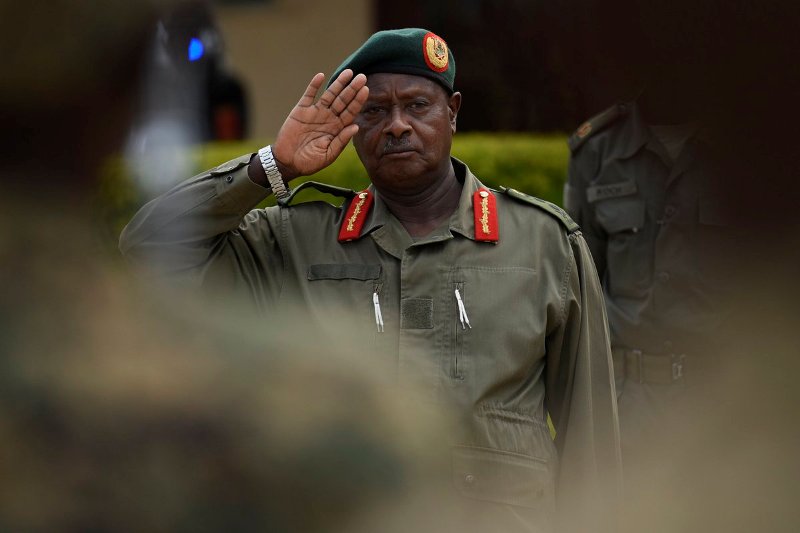Are the recent brutal crackdowns on Ugandans a departure from Museveni’s calculated rule?
Columnist, cartoonist, and anti-corruption activist Prof. Jimmy Spire Ssentongo has weighed in with his perspective, arguing that the country may be witnessing a departure from the political style that has defined President Yoweri Museveni for decades.

A rising tide of alleged kidnappings and arbitrary crackdowns has cast a shadow over Uganda, prompting widespread public anxiety and a pointed question: who is orchestrating this escalating wave of fear? Amidst this unsettling climate, prominent anti-corruption activist and columnist Professor Jimmy Spire Ssentongo has offered a compelling, yet disquieting, perspective. He argues that the current events may signal a departure from the long-established political playbook of President Yoweri Museveni, a leader renowned for his strategic acumen.
For decades, President Museveni has been characterized by his meticulous approach to governance. Professor Ssentongo, in his recent commentaries, paints a portrait of a leader who deeply understands the dynamics of power, adeptly navigating the complexities of both alliances and opposition. Museveni, described by Ssentongo as a “Machiavellian leader,” has historically excelled at political survival not through impulsive action, but through careful calculation and observation. This strategy, according to Ssentongo, involves a keen ability to discern who warrants attention, who can be dismissed, who needs appeasing, and crucially, who must be “neutralized.”
This assessment resonates deeply with many Ugandans, who frequently express online their perception of Museveni as a consistently one step ahead, subtly maneuvering while others are caught in the immediate fray. Social media buzz often labels him a political chess master, patiently studying the board while distractions abound.
Ssentongo further emphasizes that Museveni’s actions are rarely driven by anger or impulse, likening his approach to that of a predator, carefully timing its strikes. This projected image of unwavering control, he suggests, is a deliberate tactic to prevent opponents from sensing any vulnerability. This calculated calm has undoubtedly contributed to Museveni’s over three-decade tenure, a fact acknowledged with a mixture of admiration and trepidation by citizens online.
However, Professor Ssentongo posits that the recent pattern of alleged kidnappings does not align with this established modus operandi. He points to these tactics as “crude methods” that starkly contrast with Museveni’s historical style. While autocratic actions have been a feature of his rule, they have often been camouflaged within democratic performances, with overt, arbitrary violence reserved as a last resort. The current wave, Ssentongo suggests, appears less sophisticated and more desperate.
This analysis has ignited widespread debate across Ugandan social media platforms. A palpable sense of unease permeates online discussions, with many citizens expressing that the country feels more repressive than ever. Queries abound on Twitter regarding the rationale behind such heavy-handed tactics and whether these actions represent a deviation from the traditional political framework.
Some Facebook users speculate about aging leadership, a potential decline in Museveni’s capacity to manage his intricate strategies, or the emergence of a new, less subtle actor who relies solely on brute force. Others view it as a dangerous normalization of fear and intimidation in public life. The prevailing sentiment among ordinary Ugandans is a shrinking space for dissent and a mounting sense of fear with each new report of harassment or abduction.
Professor Ssentongo also characterized Museveni’s approach to alliances as fundamentally transactional, asserting that neither friends nor enemies are permanent. Rather, they are viewed as interchangeable pieces on a political board, valued only for their utility in advancing his objectives. This metaphor has struck a chord online, with many Ugandans commenting on the perceived political detachment and the sense of being mere “pawns” in a game devoid of justice or fairness. This framing has intensified discussions about the nature of power in Uganda and the human cost of prolonged rule.
As Uganda approaches the 2026 elections, these questions gain heightened urgency. Concerns about the erosion of democratic space, escalating political repression, and the perceived shift from strategic maneuvering to overt displays of force are making the public increasingly vocal. Calls for transparency and accountability are growing, amplified by personal testimonies of intimidation shared widely online. Social media has become a crucial nexus for these voices, ranging from expressions of personal safety concerns to broader debates about whether Uganda’s political system is veering towards unsustainable methods of control.
Ultimately, Professor Ssentongo’s commentary serves as a potent reflection on Uganda’s political trajectory. It prompts a critical examination of whether the current events represent the calculated political mastery that has defined Museveni’s earlier years, or if they signal a shift towards a more overtly forceful and perhaps less sustainable form of governance. On the streets, in homes, and across the digital landscape, Ugandans are observing, debating, and wrestling with this disquieting uncertainty, seeking answers to who truly holds the reins of power and whether Uganda’s future will be shaped by cunning strategy or descending into brute force.







